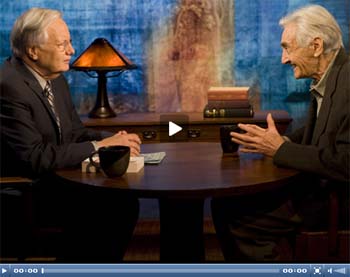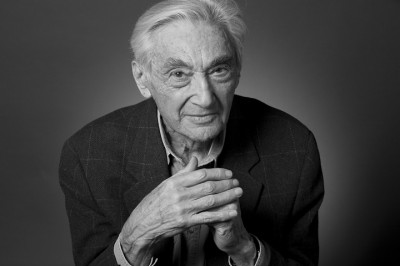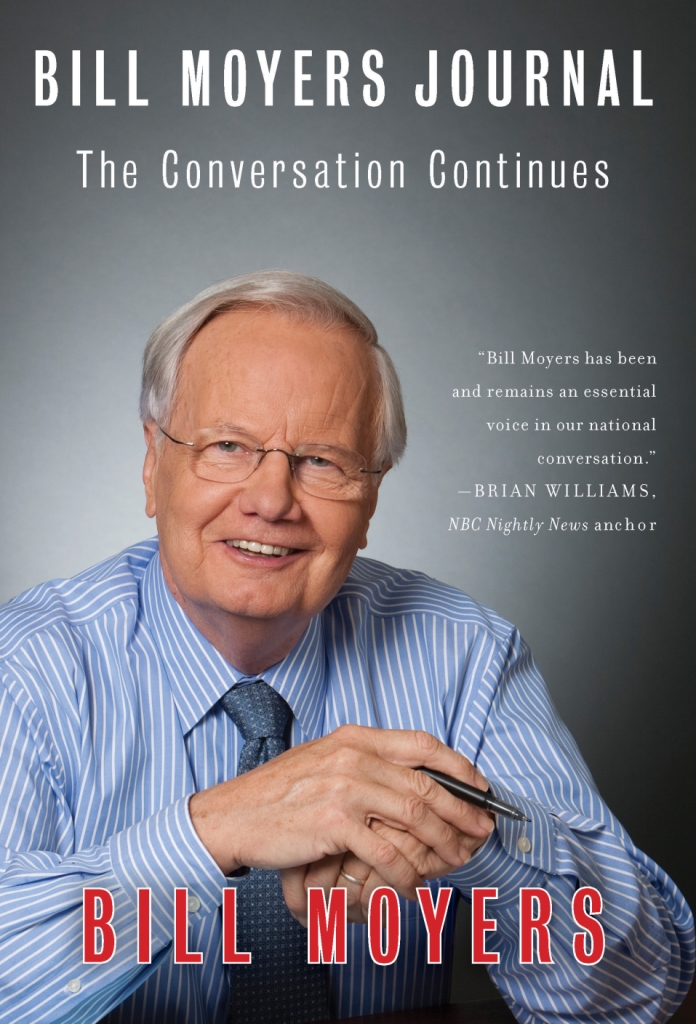 Bill Moyers conducted an interview with Howard Zinn for the PBS Bill Moyers Journal on December 11, 2009, shortly before the release of Zinn’s film, The People Speak.
Bill Moyers conducted an interview with Howard Zinn for the PBS Bill Moyers Journal on December 11, 2009, shortly before the release of Zinn’s film, The People Speak.
The conversation between Bill Moyers and Howard Zinn is filled with Zinn’s plain-spoken wisdom and sings with his confidence in the power and potential of human beings working together. Zinn insisted that the more we know our history, the more hopeful we should be about the future:
“I have confidence in the future. You know why? You have to be patient. Farmworkers were at one point in as helpless a position as the labor movement is today. But as Cesar Chavez said, we learned that you have to organize. And it takes time, it takes patience, it takes persistence.”

Photo by Robin Holland for Bill Moyers Journal.
In the interview, Zinn shows his concern about what is taught — and what should be taught — in school:
“Democracy doesn’t come from the top. It comes from the bottom. Democracy is not what governments do. It’s what people do. Too often, we go to junior high school and they sort of teach us that democracy is three branches of government. You know, it’s not the three branches of government.”
Take a moment to remind yourself about Howard Zinn’s warmth, humor, and commitment to social justice. And remember to take to heart Zinn’s insistence that, ultimately, change comes from the people, not the leaders:
“Don’t depend on our leaders to do what needs to be done, because whenever the government has done anything to bring about change, it’s done so only because it’s been pushed and prodded by social movements, by ordinary people organizing.”
 This excerpt originally appeared in Bill Moyers Journal: The Conversation Continues. Copyright © 2011 Bill Moyers. Published by The New Press, Inc. www.thenewpress.com. Reprinted here with permission.
This excerpt originally appeared in Bill Moyers Journal: The Conversation Continues. Copyright © 2011 Bill Moyers. Published by The New Press, Inc. www.thenewpress.com. Reprinted here with permission.
To order Bill Moyers Journal:
The Conversation Continues, visit The New Press.









I really hope that his confidence proves to be correct that the people’s will can over come the influence of big business and large money interests!
Abe Barakat
Glendale, CA
Mr Zinn’s optimism and his belief in nonviolent civil disobedience in the face of present-day events should be his greatest legacy. For this we owe him a debt of gratitude.
Randy Converse,
Madison, Wisconsin